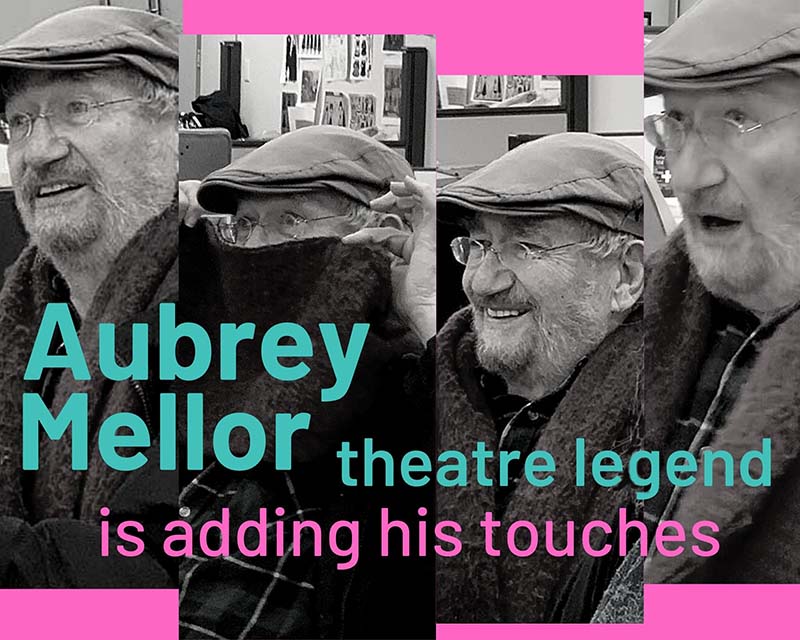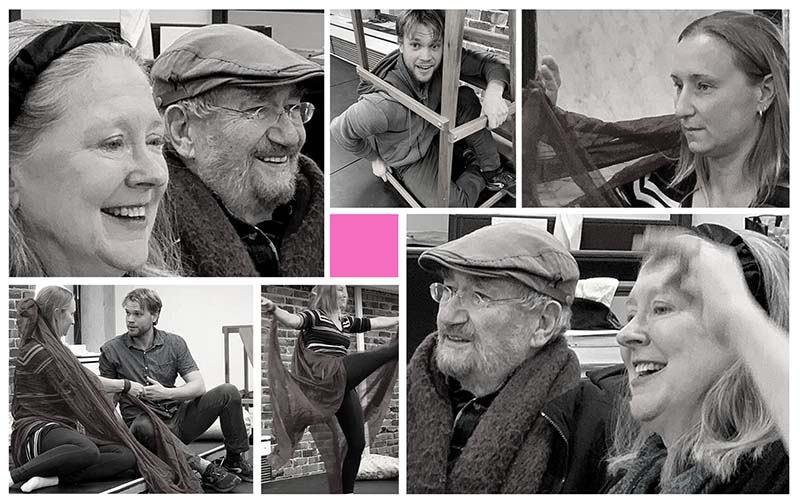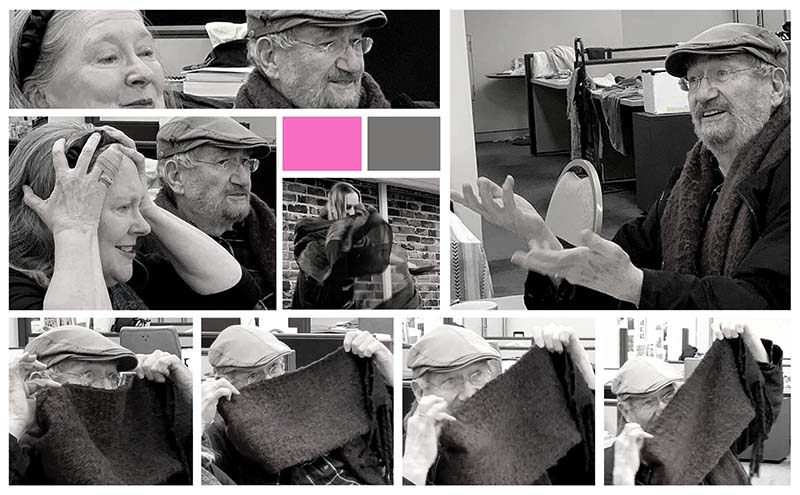Aubrey Mellor OAM is a revered, multi-award-winning, artistic director, writer, actor, theatre director, and arts educator. He mentored our Artistic Director, Christine Logan, in Endangered Productions' major show Peer Gynt.
Aubrey has spent a lifetime in the arts – including opera, dance, theatre, and film. He has presided over many of Australia's most ground-breaking theatre initiatives and has been responsible for performances that have shaped our national culture and identity. (Read Aubrey's Bio here).
With all this in mind, we asked Aubrey for his reflections on our Peer Gynt. Here is some of what he said.
Don't miss it. It won't happen again in our lifetime.
It’s exciting because the live music production with a single Peer is rare. Ralph Richardson might have played the role in the early days of the Old Vic. Robert Menzies (the actor) might have done it in Melbourne …
At NIDA in the ‘70’s, Alex Hay put on Peer Gynt with recorded music and unedited script. Over the five-hour performance (ours is shorter!), eight actors successively took on the role of the ageing Peer. Four of the ‘former Peers’ are coming to opening night. They want to see it with live music, a big orchestra and the choir. They know exactly how ambitious this project is!
As a species we are fascinated by good and evil.
I am intrigued by the great oral sagas, such as Gilgamesh, the Odyssey and the Mahabharata. Peer Gynt is also universal. Like the dramatic literature of many countries, it has a hero who goes on a great journey, but its overall meaning remains perplexing and elusive. It lets the audience take from it what they want.
Alongside this, Peer Gynt also contains shared touchstones of human experience that both attract - “be yourself” - and frighten us - existential annihilation … after all, young Peer is cast out by his community for his terrible behaviour, and after his long life he is neither good nor bad enough to be saved or damned by the ultimate judge, the Button Moulder – a doomed mediocrity. That is terrible!
It gives me 'the full troll'.
In this early work Ibsen is writing poetically and it feels like mythology. In his later works there are not enough trolls and too much naturalism. I want something to transport me! Peer Gynt provides scope for the audience to see things in their imagination. The music helps because it’s exciting and the imagery jumps out. Ibsen is a wonderful storyteller and Grieg matches him.
It's a play of polar opposites.
In teaching, I emphasise the dramatic importance of polar opposites: exaggeration and distillation; amplifying and paring back. Peer Gynt has these. It flips back and forth between comedy and drama, theatrical ‘smoke and mirrors’ versus an essence. Within this mythic, fantastical narrative lie intimate human situations, such as the poignant relationship between mother and son, Aase and Peer. Elaine (Hudson) and Philippe (Klaus) are thrilling. I’m honoured to see them working together. I knew Elaine when she was at NIDA. She was brilliant even then. Aase feels deep tenderness for Peer as well as excruciating exasperation. Peer can be a nightmare and we feel for Aase. Her human dilemma is all too familiar to many parents.
The role of Peer is bigger than King Lear. Even Shakespeare gave Lear resting spots!
Everyone in this production is being challenged. Philippe as Peer is taking it all on and doing a great job - he is in every scene and ages from a young boy to an old man, which is very difficult. All the actors are playing multiple roles. Katherine (Munro), for example, is playing Anitra, Ingrid and the Woman in Green. Any one of those roles would be enough.
Linking to the music is also very difficult for the actors. Costumes need to be made for all the characters. Changing them on the night will be a revolving door backstage, which contains the orchestra and choir as well. It is a small stage and a venue that they don’t know…
But the real questions are: How they will tell the story as a group? What should this scene be about? How does it link to the next? The magic thread is Christine. She knows her cast and is working wonderfully with them. My job is to help Christine put on stage what is in her head.
They are doing fantastic stuff with the music. The result is phenomenal.
The music is gorgeous. We know and love it. There is nothing quite like it. In Peer Gynt two giants, the master of the theatre and the master of the orchestra, come together.
But how? This production tells us. It shows how Grieg heard the play in his mind. We can hear a piece and understand “that that’s where that fits” or “that’s what that means”.
I’ve directed operas and musicals and love having musicians in a room. Throughout much of history, music and drama were intertwined. When they became separated, it was a terrible split. Then we fell in love with recordings!
It’s good to go back to the live original music. And with this play, translation and score, with a full orchestra and a choir, well …
That's why four ex-Peers are coming to opening night!



